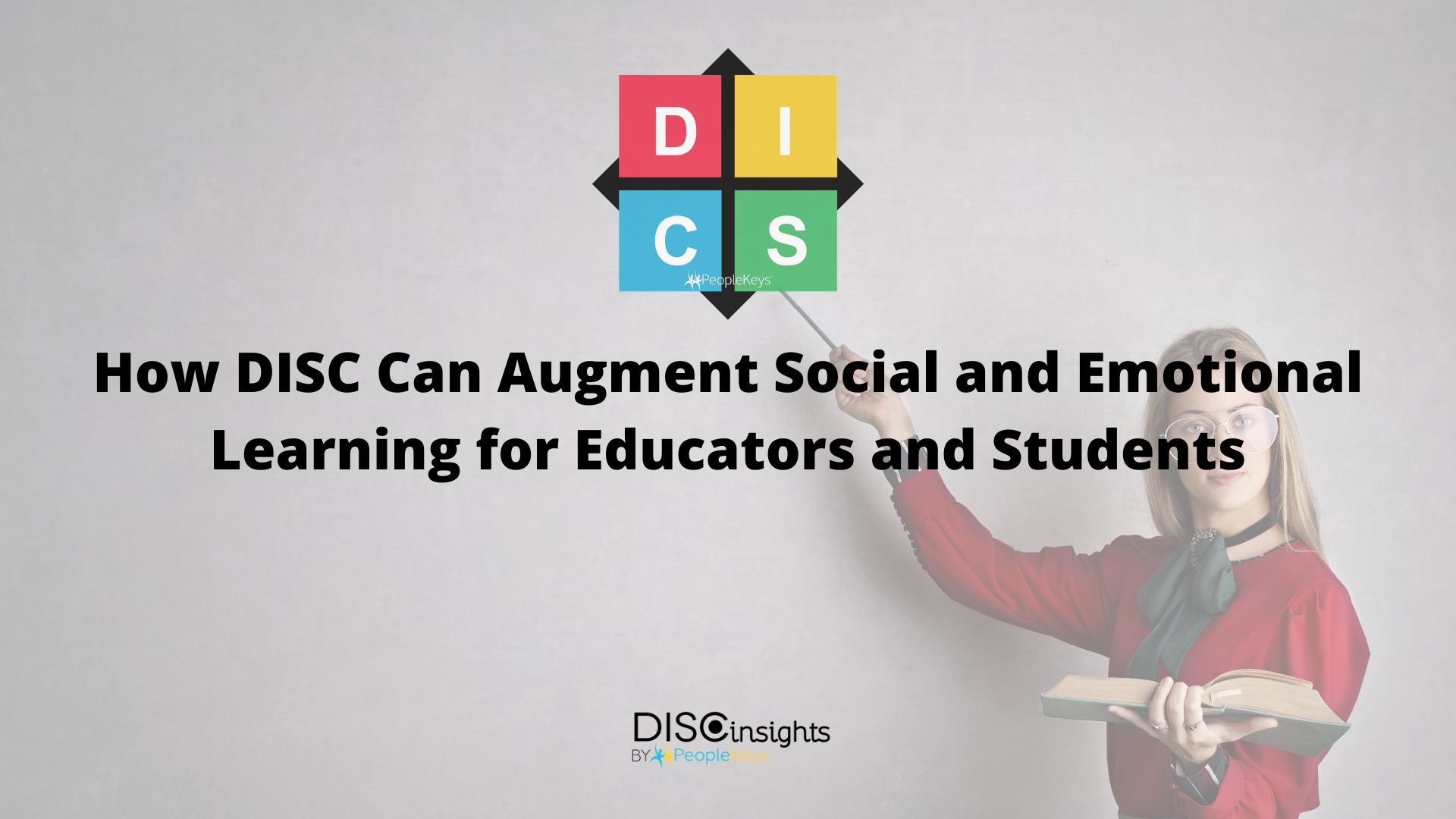- SHOP BY PRODUCT
- DISC TRAINING & CERTIFICATION TOOLS
- DISC RESOURCES
- BLOG
- SHOP BY PRODUCT
- DISC TRAINING & CERTIFICATION TOOLS
- DISC RESOURCES
- BLOG
- ALL ITEMS



School administrators and teachers have a unique opportunity to grow and develop young minds by incorporating social and emotional learning (soft skills) into the academic environment from early childhood education years through high school. Teachers interact with students not only during instructional time, but also in the lunchroom, on playgrounds, during physical education classes, and even online. This presents a prime opportunity for teaching, modeling, and developing soft skills in students.
The DISC behavioral assessment is a unique teaching tool educators can utilize as a foundational guide to learn more about soft skill developmental needs in themselves, as well as their students. The following are four key areas of development students and educators will benefit from by making use of DISC as an educational resource:
DISC Theory identifies dominant personality traits that highlight strengths and differentiate key behavioral indicators. One's personality blend forms a baseline understanding between teacher and student that leads to better communication and establishes a foundation to build trust and respect. It illuminates any propensity for interpersonal conflict, as well as potential communication barriers that would otherwise cause unnecessary frustration or disruption during instructional time. DISC offers educators successful intervention strategies that can be applied to augment a student's academic or social development needs.
When students complete the DISC assessment, they adopt a common language relative to their peers, and their primary social and emotional learning environment—school. Kids begin to see and understand behavior and body language in a simple, digestible format, easily remembered based on one of the four primary D-I-S-C styles and their combination.
There are numerous ways teachers can reinforce knowledge and awareness of their DISC behavioral style, as well as compare the individual styles of their students. From wall art to posters and color-coded folders, pencils, and nametags, the options are relatively inexpensive and endless. These serve as daily visual reminders that reinforce learning and hold students accountable for their behavior in the classroom and on campus. Students begin to learn and understand how their behavior can positively or negatively impact others, especially in a learning environment. Teachers can extend the opportunity for students to apply learned, self-management strategies before resorting to discipline, when applicable.
As students rise through grade levels from elementary, to middle school, to high school, they will face many social and emotional learning challenges. From personal relationships, team sports, group projects, and social clubs, their ability to effectively navigate through each varying dynamic is directly related to the skills they learn and develop along the way. With a DISC foundation, students become equipped with knowledge and understanding of predictable behavior amongst their peers, and learn key communication strategies and techniques that positively reinforce acceptable behavior while minimizing or mitigating the spread of unacceptable behavior. As they grow and mature in their understanding of expectations, many students become an extension of administrators and staff, as they hone critical leadership and management skills that will serve them post-graduation and into adulthood.
Soft skill development and social and emotional learning is a focus area highlighted in the national basic educational strategy and policy in the United States. The intent is to establish foundational skills from an early age during primary years, and develop them throughout their educational journey to prepare them for success as they continue beyond secondary education or higher education, and into the job market. These skills are critical to equipping young adults for specific technical, vocational, or other service-based careers where strong interpersonal and communication skills are required. For example, the health care industry places professionals in frequent and direct interaction with patients and clients. People naturally expect emotional support, care and concern from medical professionals, especially during traumatic events. This is where soft skills come into play as they adjust their behavior and communication to the needs of the patient.
With a foundation in DISC behavioral styles and a focus on soft skill development, students and educators become equipped and empowered for a lifetime of success, by creating and fueling a continuous cycle of social and emotional learning that grows and compounds over time.

© PeopleKeys. All Rights Reserved
WORKING DAYS/HOURS
Mon - Fri / 8:30AM - 5:00PM EST
